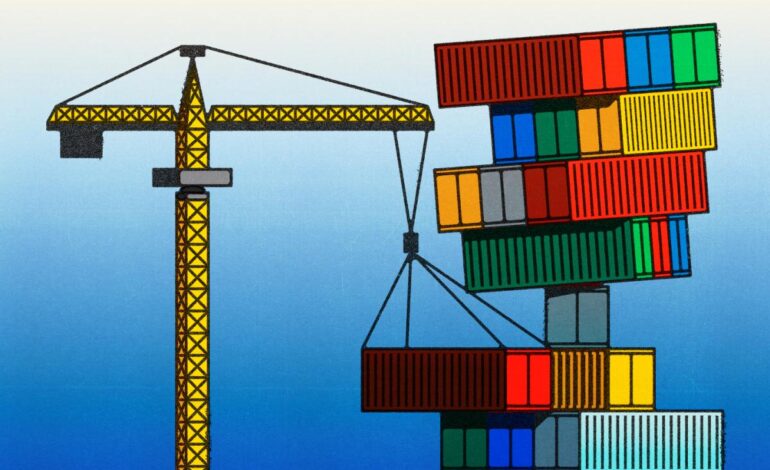Global Economy Faces Major Shift Amid Unilateral Trade Policies

The global economy is experiencing a significant transformation, marking the third major economic reordering in a century. This shift, which has seen the United States take a leading role, is characterized by an increasingly unilateral approach to trade that distances allies and creates opportunities for adversaries.
At the heart of this transformation lies the legacy of the United States’ influence, particularly following the establishment of the Bretton Woods system in July 1944. The U.S. emerged from World War II with a position of strength, compelling other nations to adopt a dollar-centric international economic framework. The system, largely architected by U.S. Treasury official Harry Dexter White, aimed to foster global stability through fixed currency exchange rates, benefitting American exports while promoting peace through trade.
A pivotal moment came in 1971 when President Richard Nixon dismantled the dollar’s convertibility into gold, signaling a departure from multilateral cooperation. During a retreat at Camp David, Nixon’s team, including then-Treasury Secretary John Connally, prioritized American interests over those of international partners, leading to a shift in U.S. trade policy that has reverberated through the decades.
Today, the administration of President Donald Trump reflects an explicit unilateral stance, particularly visible through his “Liberation Day” tariffs. These measures, targeting both allies and adversaries, stem from a belief that the U.S. has shouldered disproportionate burdens in maintaining the global financial system. While Trump’s approach has highlighted the shortcomings of the existing trade order, including the detrimental effects of deindustrialization and supply chain vulnerabilities, it has also strained essential partnerships.
The World Trade Organization (WTO) has faced criticism for its inability to enforce fair trading practices, allowing countries, notably China, to engage in unfair competition. According to various analyses, the failure to address industrial subsidies and protectionist measures has led to a rise in anti-trade sentiments across the political spectrum in the United States, with both major parties recognizing the flaws in the current system.
This growing dissatisfaction is not new; previous administrations, including that of President Ronald Reagan, took steps to protect American industries, albeit through less aggressive means. Since George W. Bush, U.S. trade policy has increasingly attempted to address the issues created by an evolving global economy, culminating in Trump’s more drastic structural changes.
The underlying issue, however, is not merely the trade deficit but rather how the global economic system has failed to provide a level playing field for American manufacturers. The notion that trade deficits are the primary culprit distracts from the broader systemic failures. The U.S. has not capitalized on its strengths in high-tech manufacturing, as policies in other nations allow for significant industrial subsidies and disregard for labor and environmental standards.
As the need for a reformed global trading system becomes evident, the U.S. must consider a strategy that emphasizes cooperation rather than isolation. China’s economic weight necessitates a coalition of like-minded nations willing to confront unfair practices. This approach could involve establishing a new trade framework, potentially in the form of a fair-trade customs union, which would prioritize high labor and environmental standards while deterring anticompetitive behaviors.
The proposed customs union would serve as a counterbalance to China’s influence, creating a market for countries willing to adhere to fair trade principles. By fostering collaboration, this union could enhance American competitiveness while addressing the underlying issues of deindustrialization and trade imbalances.
In conclusion, the current juncture presents both challenges and opportunities for the United States. While tariffs may offer short-term solutions, they risk alienating crucial allies and undermining long-term economic stability. A balanced approach that leverages international partnerships and fosters fair competition can pave the way for a more sustainable global economic order, aligning with the foundational principles of free trade that have historically benefited the United States and its partners. The imperative for reform remains urgent as the world navigates this pivotal economic reordering.






